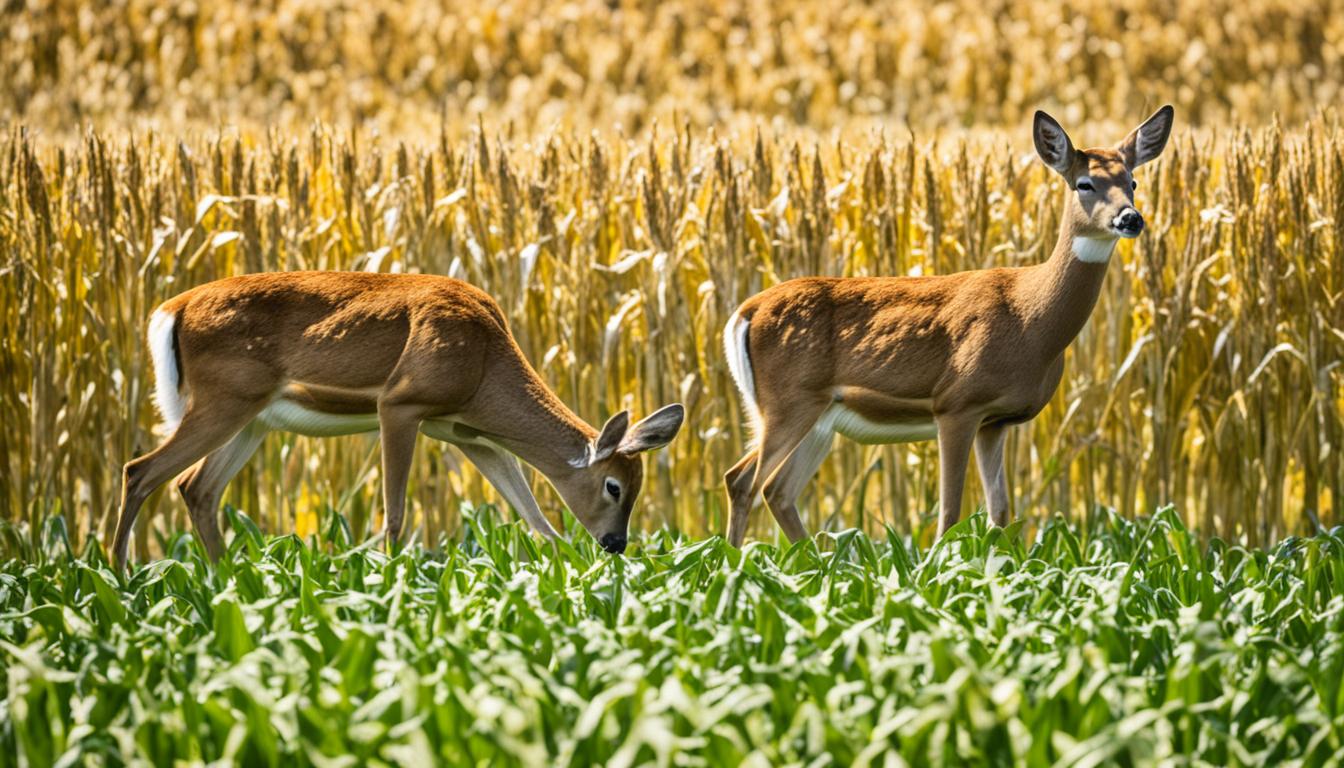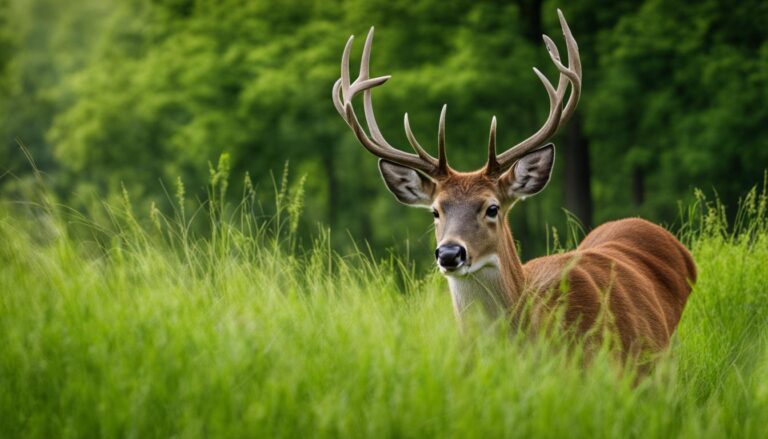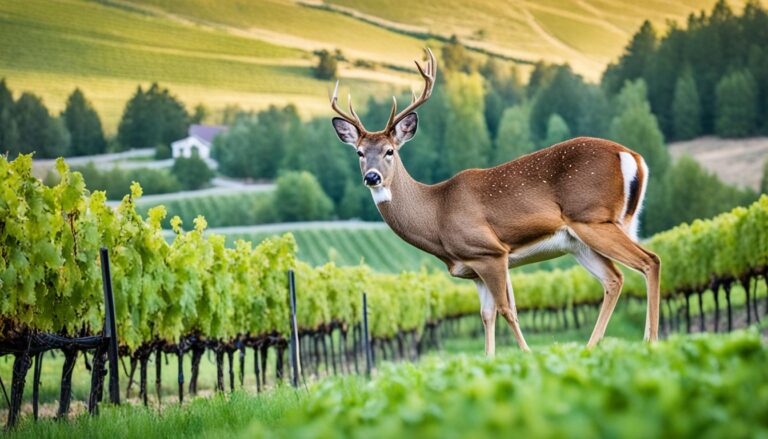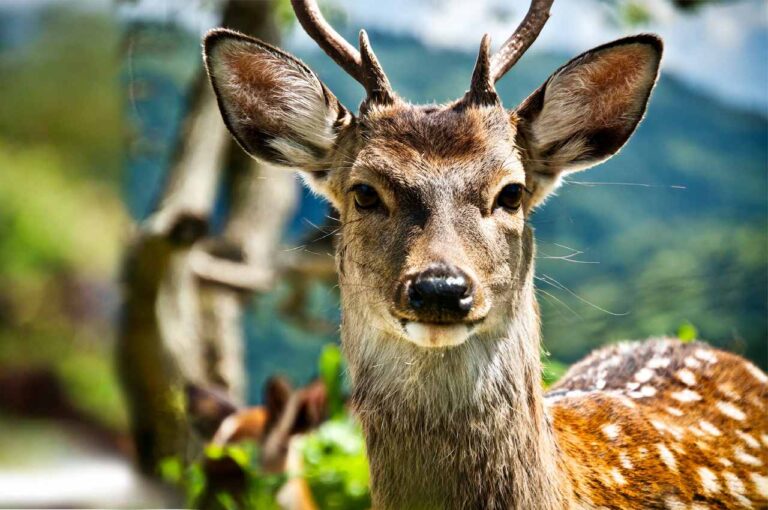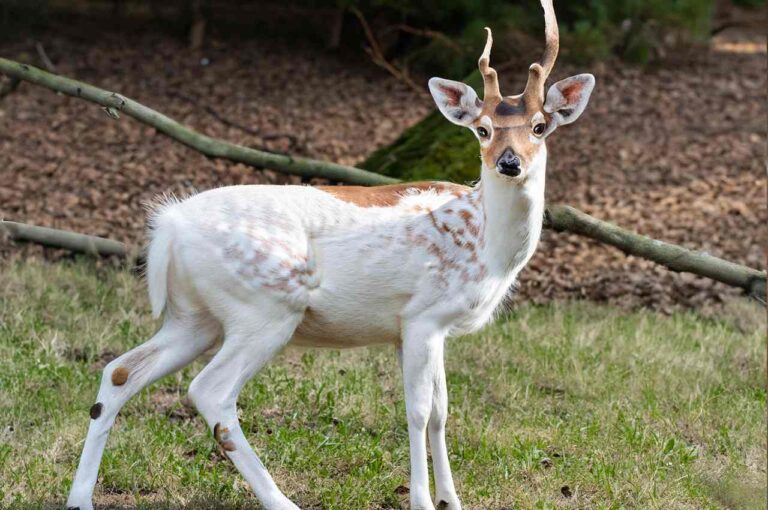Should Deer Eat Corn? Nutritional Impact Explained
When it comes to the question of whether deer should eat corn, many articles have conflicting information. Some suggest that corn is not suitable for deer due to its low protein content, poor mineral profile, and potential digestive and metabolic problems. However, the relationship between deer and corn is more complex than it seems.
While corn may not provide optimal nutrition for deer, it can still have benefits when incorporated into their diet correctly. Corn is known for its high energy content, which can be advantageous for deer, especially during colder months when finding sufficient food can be a challenge.
Content Highlights
ToggleKey Takeaways:
- Feeding deer corn can be beneficial if done correctly.
- Corn’s high energy content can provide deer with an additional source of energy.
- Introduce corn gradually and pair it with a diverse array of alternative forages.
- Limit corn intake and maintain a consistent feeding schedule for optimal results.
- Consider the nutritional needs of deer and provide a well-balanced diet.
The Digestive and Metabolic Problems of Eating Corn
Corn is primarily composed of starch, which serves as an energy source for corn seedlings and is readily available to deer. However, deer are ruminants, and their digestive system, particularly the rumen, is designed for digesting high-quality forage.
When deer eat too much corn, the rapid fermentation of starch in the rumen can lead to digestive and metabolic problems. This can manifest as sickness, loss of appetite, diarrhea, bloat, and even more severe conditions such as hoof problems, blindness, seizures, and death. Feeding large amounts of corn can also damage the rumen lining and lead to hoof deformities.
It is important to understand the negative effects of corn on deer. While it can provide energy, excessive consumption can result in severe health issues. Digestive issues with corn are a result of its high starch content, which is not suitable for the deer’s ruminant digestive system. Metabolic problems can occur due to the rapid fermentation of starch, causing disruption in the deer’s metabolism.
The Dangerous Domino Effect of Corn Consumption
The consumption of high amounts of corn by deer triggers a dangerous domino effect in their digestive and metabolic systems. The rapid fermentation of starch in the rumen can not only lead to digestive issues but also disrupt their overall metabolic function. This disruption can have severe consequences for deer, including illness, decreased appetite, diarrhea, bloat, and even life-threatening conditions such as hoof problems, blindness, seizures, and death.
Feeding large quantities of corn to deer can also physically damage their rumen lining, causing further complications. Additionally, prolonged corn consumption without a balanced and diverse diet can result in nutrient deficiencies and imbalances, further impacting the overall health and wellbeing of deer.
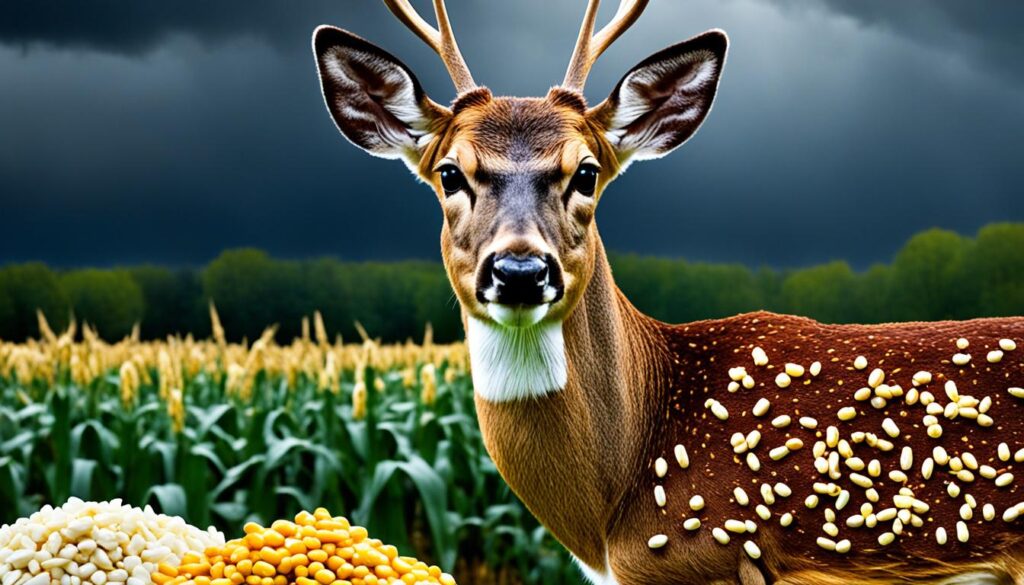
While corn may seem like a suitable food source due to its energy content, it is crucial to consider the negative effects it can have on deer’s digestive and metabolic systems. Proper understanding and moderation are key when incorporating corn into a deer’s diet.
Research Insights: Impact of Corn Consumption on Deer
Research studies have provided valuable insights into the negative effects of corn on deer when consumed in excess. One study found that deer fed a diet consisting of 80% corn experienced significant digestive and metabolic issues, such as diarrhea, bloating, and a decline in overall health. Another study revealed that excessive corn consumption resulted in hoof deformities and other physical ailments.
These findings underline the importance of balancing a deer’s diet and providing a diverse range of forages to meet their nutritional needs. While corn can be included in a deer’s diet, it should be used in moderation and alongside other suitable food sources to avoid the harmful consequences of overconsumption.
| Negative Effects of Corn on Deer | Consequences |
|---|---|
| Digestive Issues | Diarrhea, loss of appetite, bloat |
| Metabolic Problems | Hoof problems, blindness, seizures, death |
| Physical Damage | Rumen lining damage, hoof deformities |
It is evident that corn consumption in deer can lead to a myriad of negative consequences. These digestive and metabolic problems highlight the importance of carefully managing corn intake and providing a balanced diet that fulfills the nutritional needs of deer.
Proper Use of Corn in Deer Management
While corn can pose risks if not used correctly, it can also play a crucial role in deer management. When introduced gradually and paired with a diverse diet, deer can safely consume corn and other high-starch foods. In fact, a study found that deer selected a diet composed of 53-83% corn without experiencing any diet-induced problems.
Grain-based foods like corn can provide a valuable source of energy for deer and can help address specific management goals. Whether you’re looking to support deer population growth or enhance antler development, incorporating corn into their diet can be beneficial.
It’s important to introduce corn and other high-starch feeds gradually to allow deer to adapt to the new food source. This gradual introduction helps prevent digestive issues and metabolic problems. Additionally, it’s crucial to limit the amount of corn intake and provide a diverse array of alternative forages.
Feeding deer corn in a controlled manner ensures that they receive the necessary nutrition while minimizing the risks associated with overconsumption. By providing a balanced diet that includes a variety of forages alongside corn, you can optimize the benefits of corn as a wildlife food.
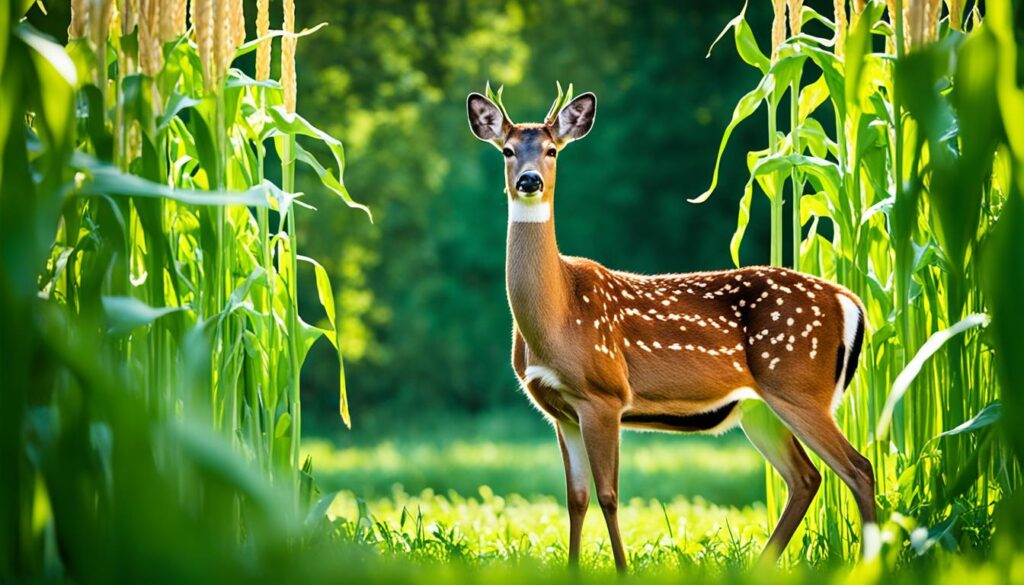
The Role of Corn in Deer Management
When used properly, corn can serve as a valuable tool in deer management. Here are some benefits of incorporating corn into a deer’s diet:
- Energy source: Corn contains a high level of carbohydrates, providing deer with a readily available source of energy.
- Attractant: The scent and taste of corn can attract deer to specific areas, making it easier to monitor and manage deer populations.
- Supplemental feeding: During periods of limited food availability, such as winter, corn can supplement deer’s diet and help them survive harsh conditions.
However, it’s important to note that corn should not be the sole component of a deer’s diet. Deer require a diverse range of forages that provide essential nutrients, minerals, and fiber. By offering a balanced mix of forages alongside corn, you can ensure that deer receive a well-rounded and nutritious diet.
“Providing a gradual introduction of corn and limiting intake can help deer adapt to the new food and minimize the risks associated with digestive and metabolic problems.” – Dr. Jane Wilson, Wildlife Biologist
| Feeding Technique | Benefits |
|---|---|
| Gradual introduction of corn | Deer can adapt to the high-starch content and minimize digestive issues. |
| Limiting corn intake | Prevents overconsumption and reduces the risk of metabolic problems. |
| Providing diverse forages | Ensures a well-rounded diet and addresses nutritional deficiencies in corn. |
Conclusion
Corn can be a valuable component of a healthy deer diet when used properly and in moderation. While it may not provide optimal nutrition, corn serves as an energy source and attractant for deer. However, there are risks associated with feeding deer corn, particularly if done in excessive amounts or without proper adaptation.
Deer have specific nutritional needs that must be considered when incorporating corn into their diet. It is important to provide a diverse range of forages and alternative food sources to compensate for the deficiencies in corn. By gradually introducing corn, limiting its intake, and maintaining a diverse feeding program, these risks can be minimized.
Feeding deer excessive amounts of corn can lead to digestive and metabolic problems. The rapid fermentation of starch in the rumen can result in sickness, loss of appetite, diarrhea, and bloat, among other severe conditions. To avoid these issues, it is crucial to follow guidelines for feeding corn to deer and prioritize their nutritional well-being.
Overall, corn can play a role in deer management when incorporated correctly. By understanding the nutritional needs of deer and providing a balanced diet that includes a variety of forages, the risks associated with feeding corn can be mitigated. Taking these precautions ensures that deer can enjoy the benefits of corn while maintaining their health and well-being.
- Wyoming Deer Season 2025-2026 New Schedule & Rules - 15 September 2025
- Wisconsin Deer Season 2025-2026: WI Deer Hunting Guide [Schedule, Rules, Licenses] - 15 September 2025
- West Virginia Deer Season 2025-2026 Complete Date & Guide - 15 September 2025
